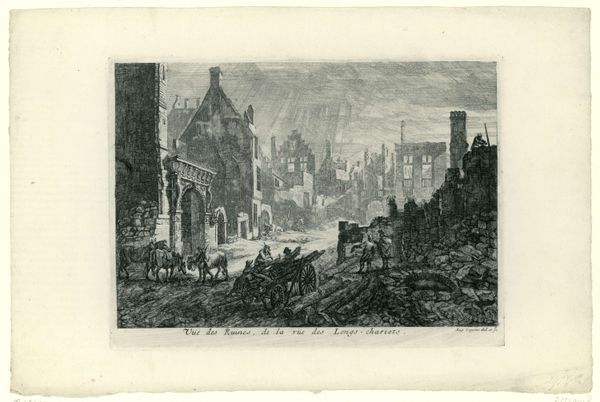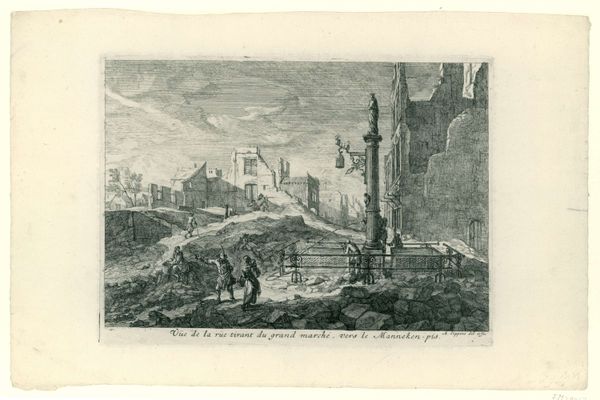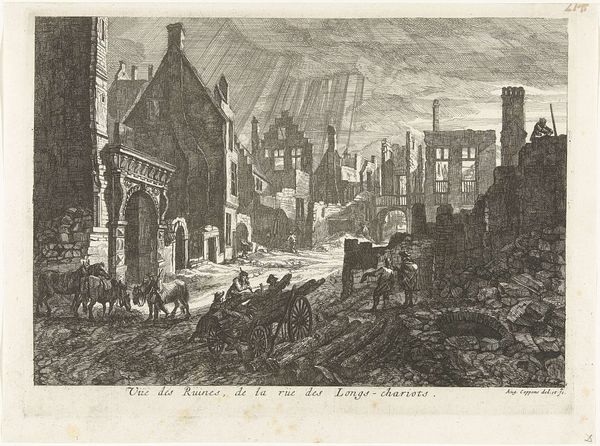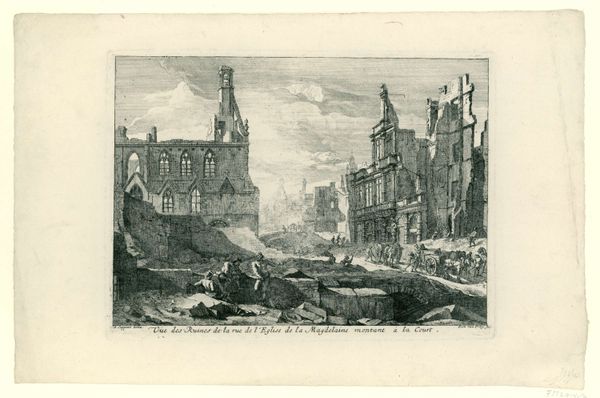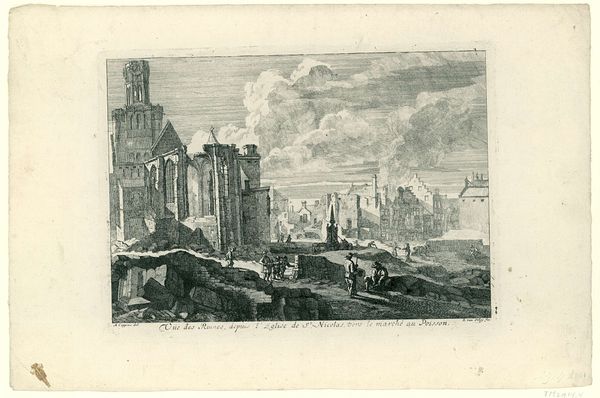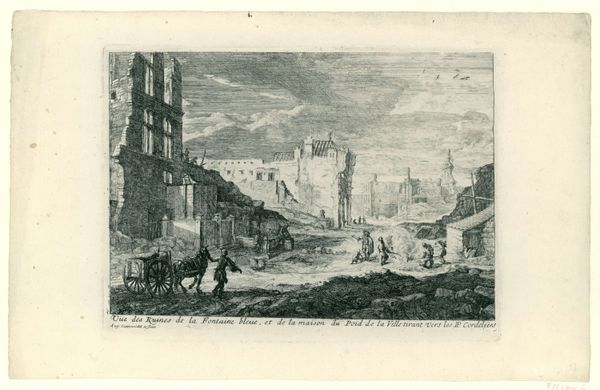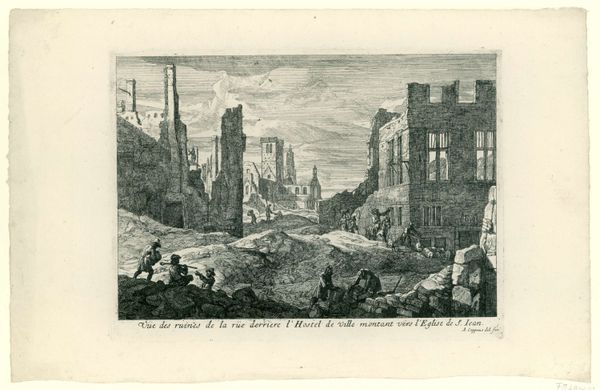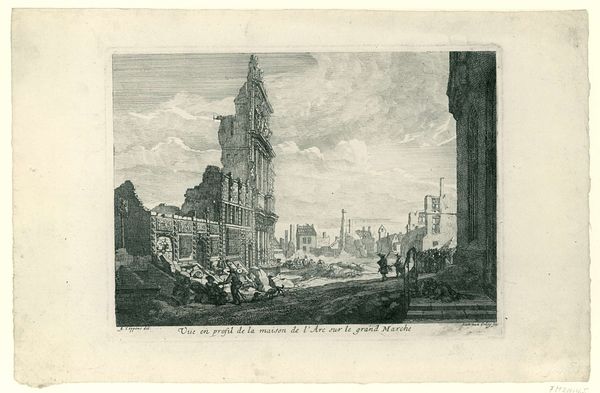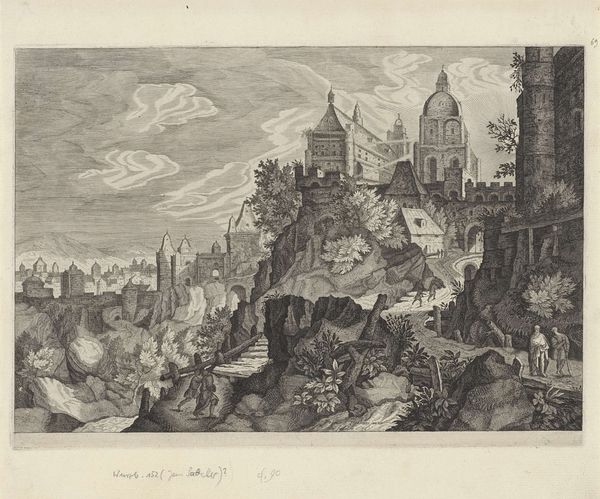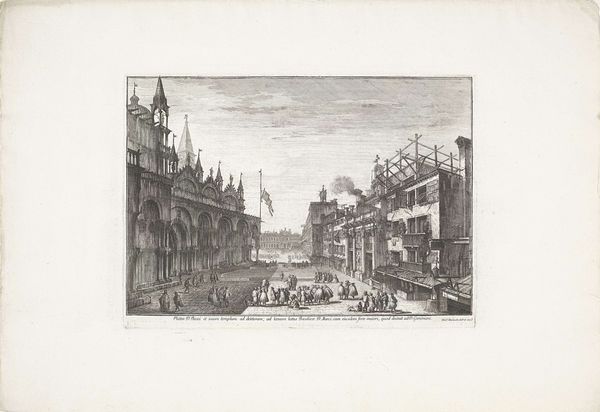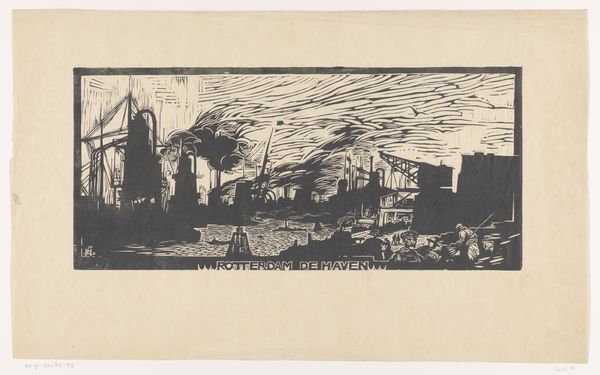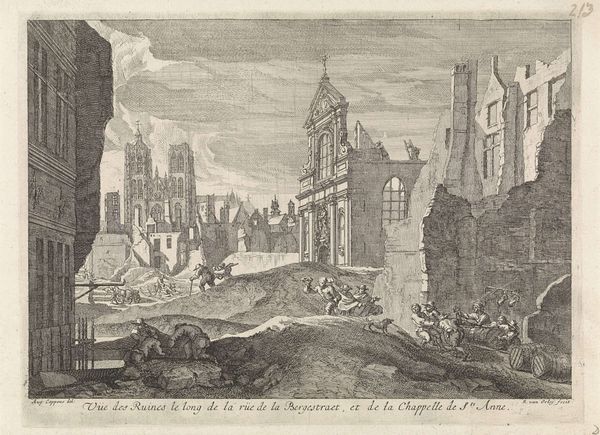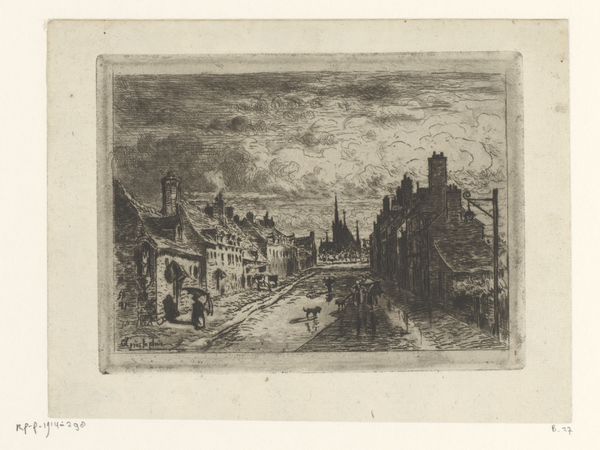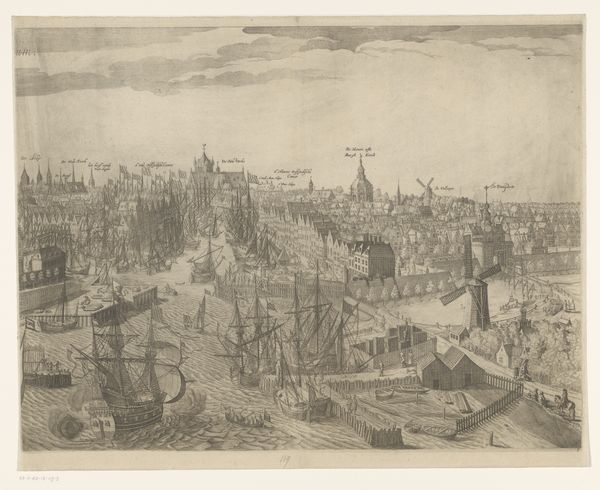
print, engraving
#
baroque
# print
#
landscape
#
cityscape
#
engraving
Dimensions: height 250 mm, width 385 mm
Copyright: Rijks Museum: Open Domain
Richard van Orley etched "Ruins near the Grasmarkt in Brussels" in 1695, and it confronts us with a vision of destruction. The dominant motif is, of course, ruin. Buildings stand ravaged, bearing witness to the destructive power of warfare. These images of devastation invoke not only the immediate historical event of the Nine Years' War but also tap into a deeper, more universal reservoir of human experience. Consider the recurring motif of ruins throughout art history, from ancient Roman depictions of fallen Troy to Romantic-era paintings that glorified decay. Ruins symbolize the transience of human achievements and the inevitable passage of time. They remind us of our mortality and the ephemerality of our creations. This image acts as a potent reminder of humanity’s capacity for destruction. Yet, it also speaks to the resilience of the human spirit, subtly hinting at rebuilding and regeneration. The collective memory of such devastation lingers, a constant reminder etched into our subconscious, resurfacing in various forms across generations.
Comments
No comments
Be the first to comment and join the conversation on the ultimate creative platform.
